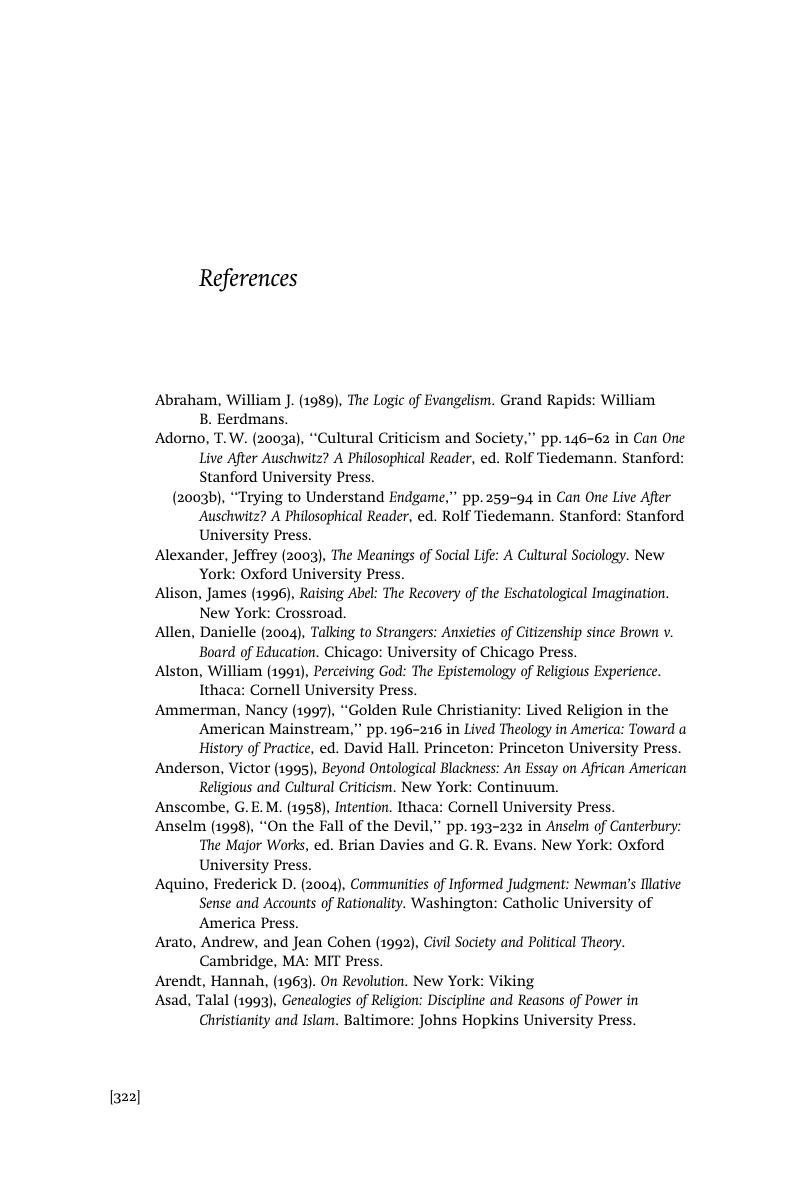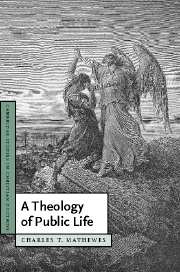Book contents
- Frontmatter
- Contents
- Acknowledgments
- List of abbreviations for works by St. Augustine
- Introduction: Life in the epilogue, during the world
- Part I A theology of engagement
- Part II The liturgy of citizenship
- Conclusion: The republic of grace; or, the public ramifications of heaven
- List of references
- Index
- References
List of references
Published online by Cambridge University Press: 05 June 2012
- Frontmatter
- Contents
- Acknowledgments
- List of abbreviations for works by St. Augustine
- Introduction: Life in the epilogue, during the world
- Part I A theology of engagement
- Part II The liturgy of citizenship
- Conclusion: The republic of grace; or, the public ramifications of heaven
- List of references
- Index
- References
Summary

- Type
- Chapter
- Information
- A Theology of Public Life , pp. 322 - 356Publisher: Cambridge University PressPrint publication year: 2007



